Every four years, national pride and footie artistry reach peak levels in a global dance of no small magnitude, the World Cup is here again. This summer, all eyes will be focused on Russia as the time to crown a champion draws ever near. With the sport’s best and brightest from 32 lucky nations on display, it’s time to take a look at what each squad brings to the table. We will dive deep beyond the usual team sheets, we’ll scratch beyond the player names, and get you ready to be the smartest on the couch/bar stool for Russia 2018.
Nigeria
Qualifying Record (W-D-L) 4-1-1* (Nigeria was undefeated in qualifying but had a game ruled as a loss for fielding an ineligible player)
Current FIFA World Ranking (April 2018) – 47th
World Cup 2014 Finish – 2nd Round exit (2-0 loss to France)
Russia 2018 Group D (Argentina, Croatia, Iceland, Nigeria)
Formation – 4-2-3-1
Strengths – Defensively sound, very organized unit, unpredictable going forward in a good way.
Weaknesses – Can be labored building attacks, struggle with the high press, shaky passing out of the back, goalkeeper issues.
Major Threats – Mikel Obi, Victor Moses, Odion Ighalo
Nigeria qualified from what was supposed to be a tough African qualifying group for Russia ’18 with surprisingly consummate ease. The Super Eagles showed a grit and organization that typically hasn’t been seen from them.
Are you a fan of the Super Eagles? Get your authentic Nigeria Jersey from SoccerPro! Remember to buy a jersey before the tournament starts!
Realistic Federation Goal for RUSSIA 2018:
The NFF will expect a quarterfinal showing. The organizational snafus that usually plague Nigeria have been done away with this time and though Group D looks tough on paper, Nigeria will be quietly confident after recent friendly results and the way they qualified for the Mundial.
DEFENSE:
Nigeria has a defense that is stifling. Past Super Eagles teams at World Cups have been known for their flair, power, pace and all those usual stereotypes Nigerian (and many sub Saharan African) teams get labeled with but this outfit is different. Sure, the flair, power and pace is still there but the steely discipline in defense can be very reminiscent of 2004 Greece or 2016 Portugal. Coach Gernot Rohr has built a unit that focuses first on a solid defensive platform. Nigeria soaks up pressure and hits the opponent back with a furious counter attack.
Coach Rohr has typically played with a back four that’s covered by a very hardworking midfield and wingers but in post-qualification friendlies, the Eagles have shown a back 3 look that has worked very well. The ability to switch seamlessly between formations can only serve the Eagles well. We assume they’ll start off in a back four and if that’s the case, expect to see a center back pairing of William Troost-Ekong and Leon Balogun. The ‘Oyinbo Wall’ have been very formidable with Balogun roaming and Ekong usually playing the sweeper role. They’re both 6’3” and it’s been largely an exercise in futility trying to beat them in the air. They show immense positional discipline and as a tandem, they’re everything a coach would want from a center-back pairing. It’s not perfect though, they are both on the slow side in terms of speed, and neither one is comfortable playing the ball on the turf which Coach Rohr prefers so the outlet pass can be shaky. However, their primary duty is defending and they excel at that.
The fullback roles will be more fluid. At rightback, Shehu Abdullahi was the regular during qualifying but newcomer Tyrone Ebuehi has shown some tremendous ability in the games since the World Cup ticket was secured. Abdullahi will likely get the starting role for the Mundial. He is excellent defensively, he stays in constant touch with his centerbacks and provides enough help in attack to keep the threat of overloading the opponent’s left wing a steady factor. Being able to help going forward and defensively without compromising the system is probably why he’ll start over Ebuehi. Shehu’s lungs are his greatest asset. He can be prone to diving in and a strict referee could see him get in card trouble.
The leftback position is trickier to predict. Uwa Echiejile played most of the games in qualifying but he is probably the weakest link in the back four. At 30, he is the ‘old man’ of the defensive unit, he’s got by far the most caps and age-wise, he’s far older than most of the others in the defense. He does not offer the pace or lungs that makes Shehu dynamic at rightback. Echiejile is steady when asked to focus mainly on his defensive duties but the dynamism of Nigeria’s attacks goes away when that’s the case. Ola Aina and Brian Idowu are recent additions to the squad and have shown some positive traits but they’ve also shown negatives that could be problematic. Aina is typically a rightback for Hull City so the issues of playing on the opposite side have crept up on occasion with him. He’s also young and inexperienced so can be caught out of position which destabilizes the integrity of the unit. Aina’s utility, engine and quick-learning ability will make him a possible starting option. Idowu has many of Aina’s traits but has played only at leftback. He has pace for days and scored on his Super Eagles debut but he’s probably defensively the weakest of the three candidates. If he starts, he’ll need a lot of cover from someone.
The man between the sticks for Nigeria is a major issue. Carl Ikeme was the regular goalkeeper until he went down with acute Leukemia in July ‘17. Since then, it’s been a revolving door in goal. Ikechukwu Ezenwa started a few games including the famous 4-0 win over rivals Cameroon in qualifying but he’s prone to lapses and there’s the sense the coaching crew are not quite satisfied with him as they’ve tried taking a close look at Francis Uzoho in friendly games. Uzoho plays for Deportivo La Coruna’s B team and has all the physical qualities needed to be a future star but he is young and very raw as his performances in the friendly games have shown. Daniel Akpeyi is another name to watch but he’s likely in the squad as GK #3. If there’s one clear area of weakness for Nigeria in defense, goalie would be it.
MIDFIELD
The Super Eagles midfield will go as Mikel Obi goes. Leaning heavily on one player in midfield is a common situation for a few countries at the 21st World Cup. When Obi plays, Nigeria look like a dynamic threat going forward. He picks open defenses with passes of every kind and has a level of vision and ‘game-making’ that no other Nigerian player possesses. If he plays, there’s no telling how far Nigeria can go. Defensively he is still largely the same player who Jose Mourinho used as the shield for those stellar Chelsea defenses a long time ago but he has lost some fitness and wanes around the 70min mark. With Nigeria, he plays a slightly different role with the Eagles. He is the creative one in a midfield trio that will likely include Leicester’s Wilfred Ndidi and Trabzonspor’s Ogenyi Onazi slightly behind him. Nigeria’s midfield can be very fluid and hard to predict because all three players can and frequently do play several roles the course of a game. Obi doesn’t have the engine of the other two but he’s the most able when it comes to creativity and vision so he’s likely going to be given the least defensive duties and his main role will be to tie the midfield and attack together. Ndidi has been superb in the Premier League this season and alongside Onazi will likely switch the box-to-box midfield role possession by possession. Both are tidy players with tremendous engines though Ndidi offers far more polish, range and ability. Onazi once played for SS Lazio and on his day he still has quite a bit of Edgar Davids to his play. He can get caught out of possession and needs to be in constant communication with his defense and midfield partners to get the best out of him.
With the flexibility of the three central midfielders, Nigeria has an amoeba-like quality to switch formations and attack points with alarming (for the opponent) regularity. If Coach Rohr successfully adds the dimension of having the central midfielders making Aaron Ramsey-like late runs into the box then Nigeria could start scoring goals in big numbers. So far, the late runs have not typically happened and that’s likely because of the fear of what that could do to the compactness and formational discipline the Eagles have displayed so far however Ndidi and Onazi have wicked engines and could make those runs. Don’t be surprised to see Nigeria add this as a regular aspect of play.
The midfield are content to play without the ball so winning possession stats in the group is not something Nigeria will worry about. Expect to see them cede possession to Argentina and Croatia and also be content bossing that aspect versus Iceland. Pressing is something that happens occasionally, Nigeria’s midfield isn’t trying to overwhelm anyone with a Gegenpress or anything of that nature but they can swarm if they smell blood and opponents will have to be tidy with their passing and movement or Nigeria’s midfield will break into quick counters and stretch the field with the wings.
STRIKERS
Nigeria’s attack is another unit of the team that’s quite different from past World Cup teams. The Yekini’s, Amokachi’s, Kanu’s, Martins’, Aghahowa’s, Emenike’s of past years have been replaced by an English-style focal point in ex-Watford striker Odion Ighalo. Nigeria is at her best when he plays because he does an excellent job of giving the team a focal point that draws in opposing defenses and holding up play for the onrushing assistants. Depending on the formation of the day, Ighalo may be joined by or replaced with Kelechi Iheanacho. The Leicester forward offers a different skillset and can be underwhelming but when he’s at his best, he is a finisher supreme who is deadly in the 18 yard box.
Joining the main striker will be a left winger (possibly Alex Iwobi of Arsenal), and a right winger (Victor Moses). Nigeria’s attack will be made or broken by the wingers. They will often switch wings and try to press the opposing team into forgetting about Ighalo. Victor Moses is unplayable on his day and will destroy any fullback who goes against him without help. The additional help usually means someone on the SE side is left unmarked and that’s where Moses’ decision making will make or break the Eagles. If he consistently finds the unmarked man, Nigeria will be awfully hard to stop but if the bad Moses shows up and he dribbles into blind alleys, the attack can stall in a hurry because he is the main man.
In 2013, Nigeria won the African Cup of Nations on the back of stellar performances from Victor Moses in attack and Mikel Obi in midfield, the Eagles are a more well rounded team these days but those two Blues are still very much key to how the fortunes of Africa’s most populous nation goes. If Victor Moses is healthy and unselfish, good things happen. Alex Iwobi on the opposite side is not as vital but his goal vs Zambia got Nigeria the World Cup ticket and it wouldn’t stretch the imagination to see him have a stretch of games where he plays team-oriented football. Arsenal fans are familiar with how frustrating he can be and those showings repeat themselves in the national colors but there’s no doubting his ability. The strength of Nigeria’s attack is much like the midfield, it can be very fluid and unpredictable. Really, with the Super Eagles attack, the sense is that it’s a question of whether Moses can play his best games.
GAME by GAME (v Croatia, v Iceland, v Argentina)
*Keys to Croatia game: Can Nigeria’s midfield maintain it’s discipline versus the immense ball-possession skills of Ivan Rakitic, Luka Modric and the rest of the Croatian midfield? The defense should be able to match up with Mandzukic or Pjaca/Kramaric or whoever plays in attack but can they hold concentration and track runners from deep? Zlatko Dalic’s side will try to play quick one-two’s to drag the defense open, can Nigeria stay focused? On the flip side, how does Nigeria attack the Croatian weaknesses? Nigeria could struggle play the possession game versus Croatia so bypassing the midfield as quickly as possible and playing directly will be key so can Mikel Obi get the ball to the breaking counterattackers quickly enough? Can Odion Ighalo press mistakes out of Dejan Lovren? Sime Vrsaljko will be a hard nut to crack on the left wing but can Victor Moses destroy whoever plays left back for Croatia? (Strinic).
Prediction: Many expect a win for Croatia but the reverse could be the case if Nigeria keeps focus and plays to her strengths. Nigeria’s strengths match up well with Croatia’s weaknesses and the Super Eagles weaknesses are not the best match up for Croatia’s smooth passing game.
*Keys to Iceland game: Can Nigeria deal with the threat of runners from deep? Can the defense and midfield handle the strength and movement of Iceland’s midfield? Can Nigeria maintain focus and discipline while owning possession as Iceland will look to punish slips in focus? Can the Nigerian attack break down Iceland’s resolute defense?
Prediction: The Super Eagles should win another close tie to wrap qualification for the 2nd round up before facing Leo Messi.
*Keys to Argentina game: Can Nigeria’s goalkeeper stop Leo Messi (See the last World Cup for further examples of what we mean)? Can Argentina’s other attackers trouble Nigeria’s defense? Can the Super Eagles pressure Argentina’s central defense into errors? Can the Eagles drive directly at Argentina as they ought to?
Prediction: These two have met in four World Cups and Argentina won every single game by a lone goal. Both sides met in a friendly in November ’17 that ended 4-2 to Nigeria (Messi missed that game). The Super Eagles know they can beat this version of Argentina, Messi or not, this is probably going to end in an exciting draw.
Here’s the likely Nigeria Roster for Russia 2018
GOALKEEPERS (3): Ikechukwu Ezenwa, Francis Uzoho, Daniel Akpeyi
DEFENDERS (8): Uwa Echiejile, Ola Aina, Shehu Abdullahi, Tyrone Ebuehi, Kenneth Omeruo, William Troost-Ekong, Leon Balogun, Chidozie Awaziem
MIDFIELDERS (6): Mikel Obi, Wilfred Ndidi, Ogenyi Onazi, John Ogu, Oghenekaro Etebo, Mikel Agu
FORWARDS (6): Odion Ighalo, Victor Moses, Alex Iwobi, Kelechi Iheanacho, Moses Simon, Ahmed Musa
Piece by Tise Okuo, frequent Center Circle writer, a recovering fan of Arsenal FC and lover of football.

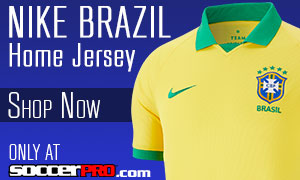
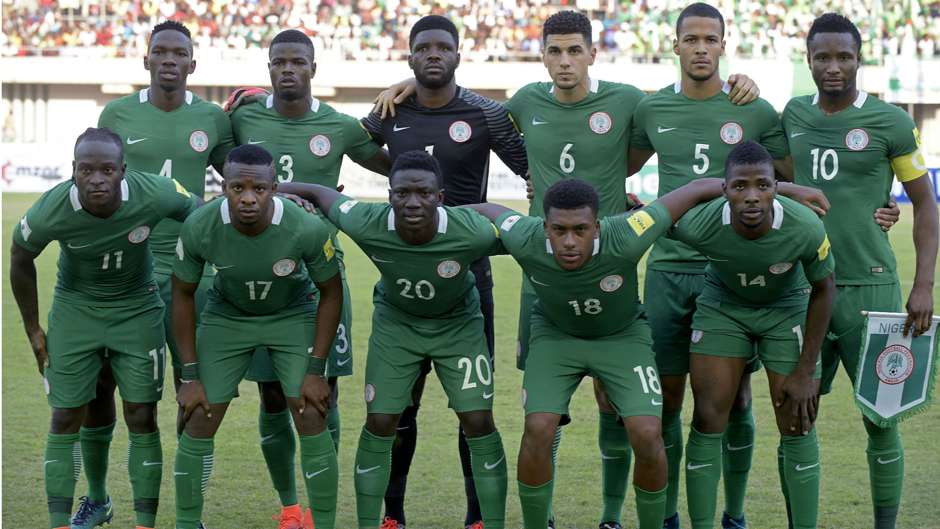
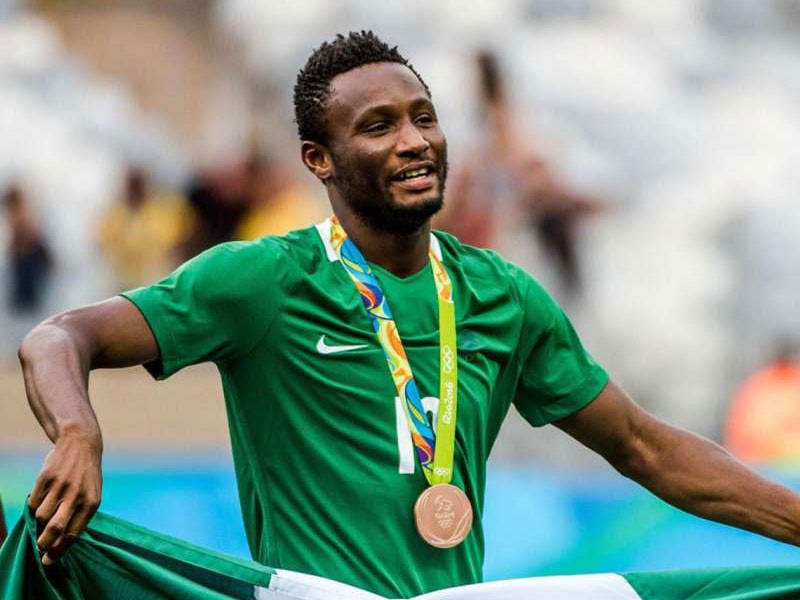
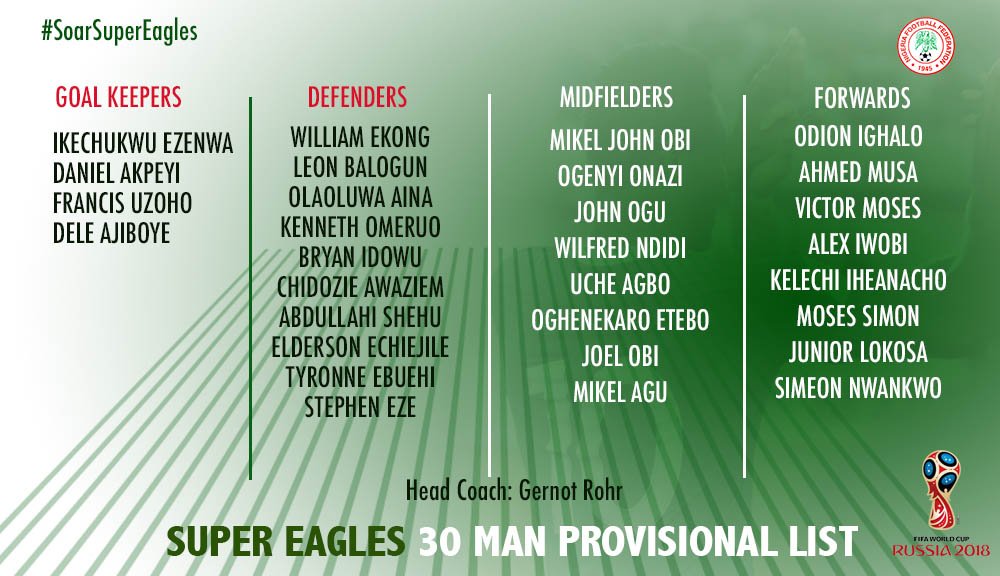
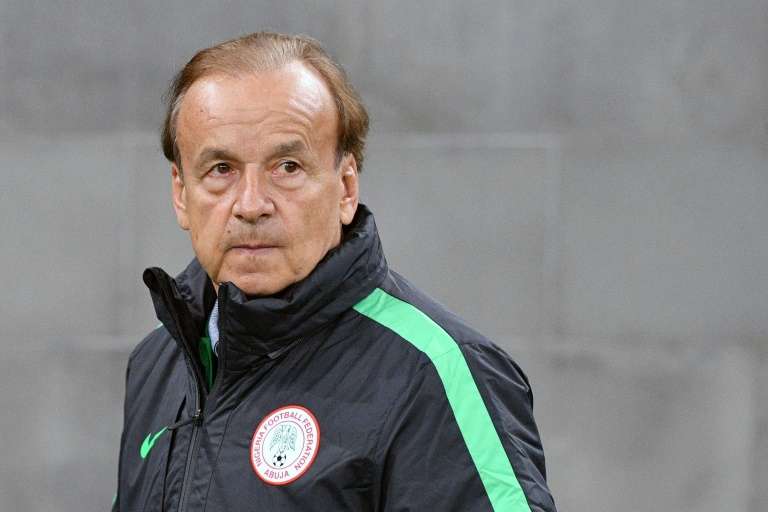
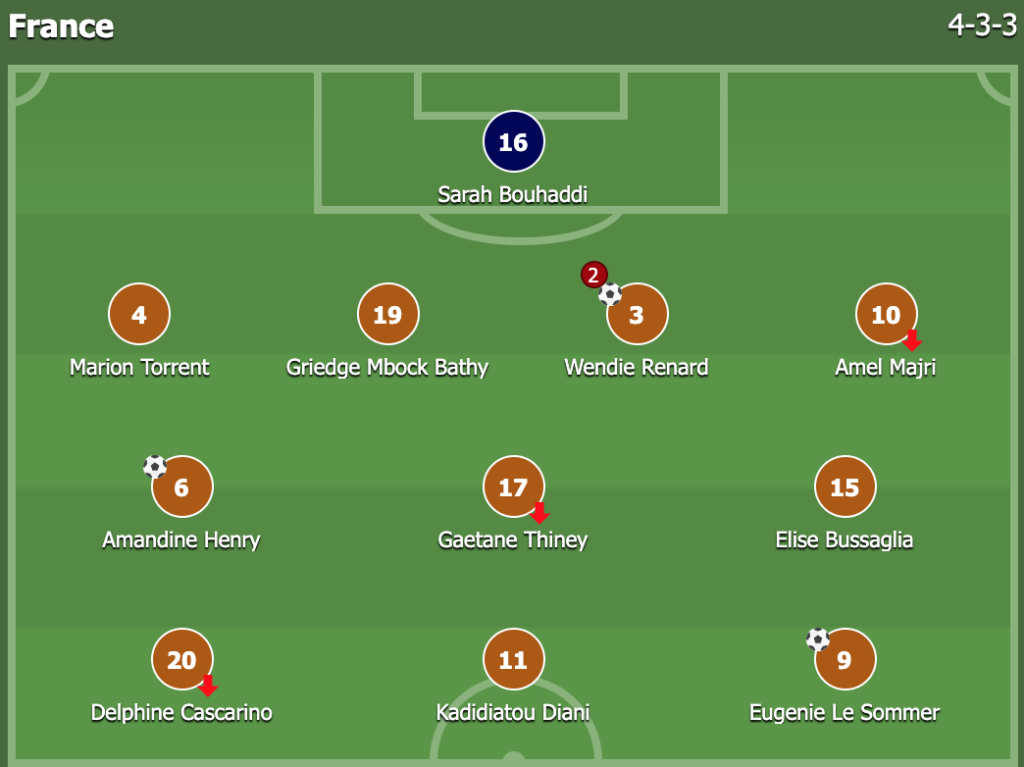
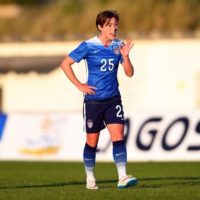
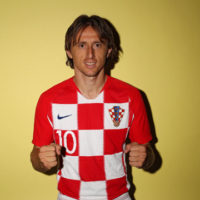
No Comments